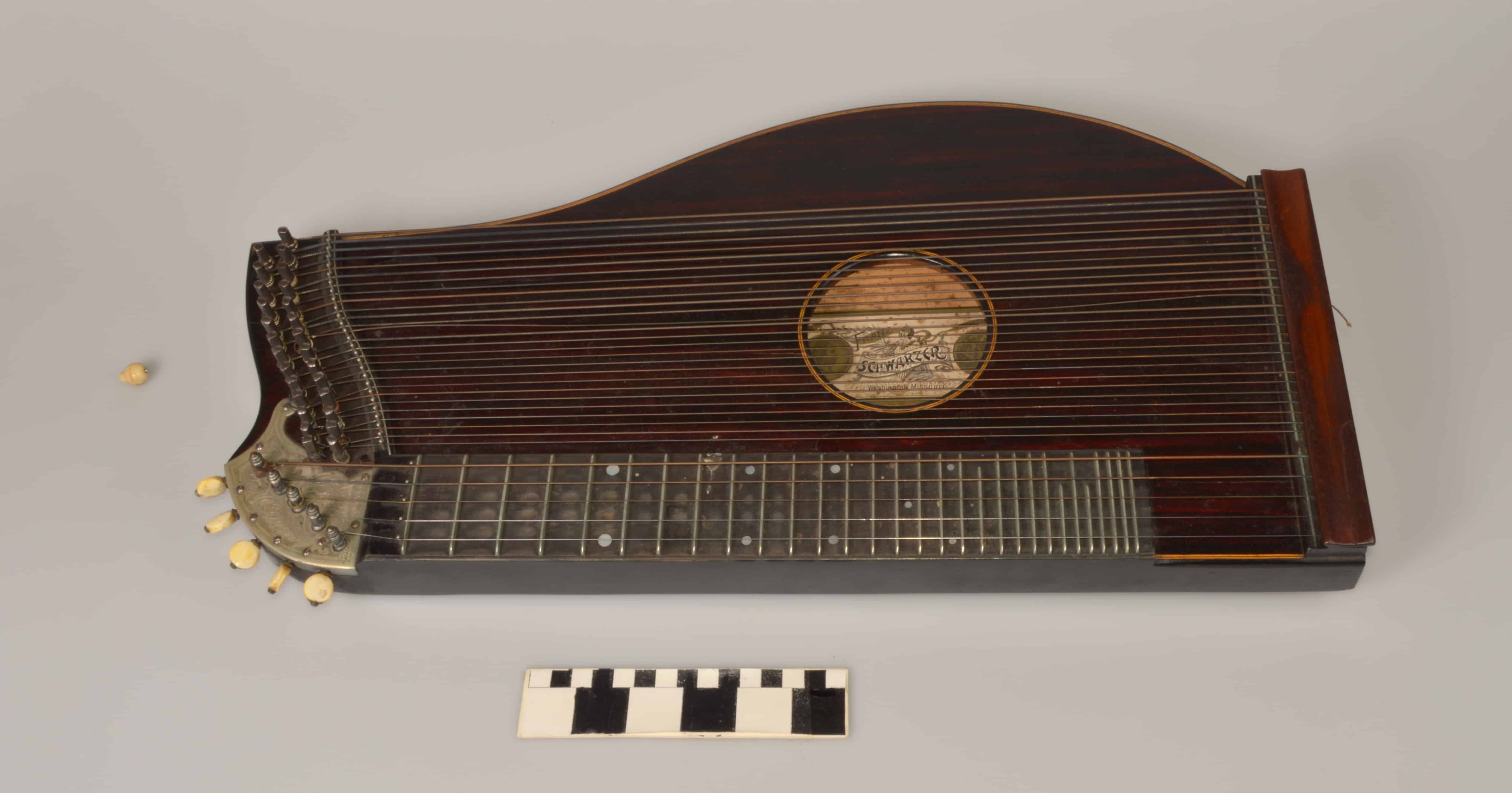The Origins of 10 Musical Idioms
An idiom is a phrase or an expression that has a figurative, or sometimes literal, meaning. Some of us use them every day! But what do they mean and where do they come from? We’re going to take a look at the meanings and origins of our favorite musical idioms below. See how many of […]

An idiom is a phrase or an expression that has a figurative, or sometimes literal, meaning. Some of us use them every day! But what do they mean and where do they come from? We’re going to take a look at the meanings and origins of our favorite musical idioms below. See how many of them you know!
“With Bells On”
With bells on:To do something eagerly, with much enthusiasm; to arrive or be somewhere happily and ready to impress or have fun.
The phrase “with bells on” was first recorded around the late 19th century and early 20th century. Over time, it has morphed into a standard reply to an invitation of some sort, as in, “I’ll be there with bells on!” It is thought to be a play off of the British saying “with (brass) knobs on.” The brass knobs in this phrase initially referred to the brass knobs on furniture, like beds and dressers, which were usually seen as expensive or as a way to impress guests.
The bells in the American phrase are harder to pinpoint the origin of. Bells usually mean jolliness and excitement (think Christmas!), and are also mentioned in the idiom “all the bells and whistle,”, meaning “with all the fancy extras,” but there is no consensus on whether the bells in this phrase are referring to any specific bells.
“Face the Music”
Face the music:To accept the consequences and responsibility of one’s actions.
There is some debate as to where the exact origin of “face the music” is from. Said to have originated in the New England area in the 1830s, some say the phrase was used to address stage fright. Others take it more literally and say that this phrase was used for actors on stage, who were “facing” the orchestra pit, the “music.”
In a bit of a darker light, some attribute this phrase to the United States military. During this period, when a soldier was let go from the army, a specific drum pattern was played upon their exit. This could have been the more literal interpretation of “facing the music.” Others also say that this phrase was used for soldiers actually going into battle. The “music” was the firepower from their enemy.
“Fiddle While Rome Burns”
Fiddle while Rome burns: To choose to deal with unnecessary details or do nothing when you should be dealing with an emergency.
Of all musical idioms, this is one of the most vivid. It refers to the story of Nero, the famous Roman emperor, who was said to have sat back and played the fiddle as Rome burned around him. While it’s true that when the blaze finally cooled down, about 70% of the city was destroyed and half its population was homeless. However, Nero probably didn’t play the fiddle, considering the fiddle didn’t even exist during this time period. It’s more likely he played the “zither,” a heavy, wooden, stringed instrument.

Example of a Zither.
“Pull Out All the Stops”
Pull out all the stops:To hold nothing back; to over-do something, or make something extravagant; to spare no expense.
Wait, weren’t we talking about musical idioms? Well, surprise! This phrase is actually referring to the pipe organ and the way it works. The “stops” in the pipes control the volume of the organ, and pulling them out meant you wanted to play at maximum volume!
The first time this phrase was used in a non-musical, figurative way was in 1865, by Matthew Arnold in a critical essay he wrote, and the rest, as they say, was history.
“Swan Song”
Swan song:One last effort or performance before death or retirement.
On a slightly sadder note, the “swan song” idiom came from a myth. Long ago, popular legend believed that swans, who are silent their entire lives, sung the most melancholy, most beautiful song ever heard by man, but only just before they died. This legend was known to be false, even in ancient Roman days, as scientists and philosophers observed swans making various sounds during their lifetime, and were never able to capture a recording of them singing before they died.
Still, writers refused to let the musical idiom go. Famous Middle English poet Geoffrey Chaucer used the phrase in his Parliament of Fowles, and Shakespeare referenced it in his play The Merchant of Venice, in 1596. The phrase is almost exclusively used now only when talking about artists’ farewell tours or final performances.
“Toot Your Own Horn”
Toot (or blow) your own horn:To brag about one’s skills or achievements.
Before there was “don’t toot your own horn,” there was “don’t blow your own trumpet.” The phrase comes from the Medieval tradition of announcing the arrival of royalty or an important guest with a fanfare of horns. In 1776, the phrase became common tongue in the United States when the sentence “I think modesty is highly overrated as a virtue — my motto is ‘Toot your own horn lest the same never be tooted.” appeared in the Warren-Adams Letters.
“Like a Broken Record”
Like a broken record: To repeat something over and over again, causing annoyance and frustration.
The phrase “like a broken record” comes from the characteristics of vinyl records. Invented in 1877 by Thomas Edison, when a vinyl record was damaged with a scratch or indent, it would “skip” or repeat sections over and over again until someone would manually move the needle away from the bad spot. The expression “to sound like a broken record” was first recorded in 1940, and though many today do not use records or record players, the saying is still quite common!
“To Play Second Fiddle”
To play second fiddle (to):To be second best; to be weaker or considered less significant when compared to someone else.
Another fiddle idiom? This phrase originated from the orchestral role of the “second violin.” In an orchestra, the “first violins” typically carry the melody and highest line of the string section, while the “second violins” play a supportive role harmonically and rhythmically. Though there isn’t necessarily a major difference in skill level between the two, in the strange hierarchy of orchestras, many have misconstrued first violins to be “better” than second violins.
The first documented mention of this phrase was found in a London newspaper in the early 19th century. This could perhaps be why the word “fiddle” is used over “violin.”
“March to the Beat of Your Own Drum”
March to the beat of your own drum: To be individualistic; to do something that does not conform to the conventional way of doing it.
In 1854, Henry David Thoreau said in Walden, “If a man does not keep pace with his companions, perhaps it is because he hears a different drummer.” Though it is not entirely certain that this is where the phrase came from, it is said that “marching to the beat of your own drum” and “marching to the beat of a different drummer” were very popular sayings in the 1900s. Drummers, especially in the military, were and still are known for being very uniform and together. To play off-beat or out of time would have been very obvious and different!
“It Takes Two to Tango”
It takes two to tango:More than one individual is responsible for the outcome of a situation.
The tango is a dance known for its requirement of two partners moving in relation to one another. It is a dance that can only be performed by two people, and they both play equal roles in the dance. Using the phrase “it takes two to tango,” came after Pearl Bailey sang the song “Takes Two to Tango,” written by Al Hoffman and Dick Manning in 1952. Ronald Reagan then used it in a 1982 presidential news conferences, where the phrase gained even more popularity.
Now that you know the origins of these famous musical idioms, they might take on a different meaning for you. At the very least, you know some fun historical information you can share the next time you hear one!

